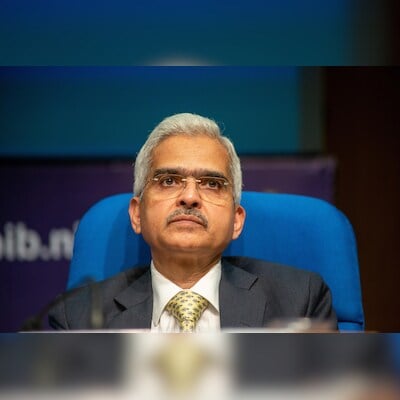Reserve Bank of India (RBI) Governor Shaktikanta Das on Monday warned that while artificial intelligence (AI) and machine learning (ML) have opened new avenues for business and profit expansion in the financial sector, excessive reliance on these technologies could pose risks to financial stability. As a result, banks and financial institutions must implement adequate risk mitigation measures, he said.
“Massive reliance on AI can lead to concentration risks, particularly when a small number of technology players dominate the market. This could amplify systemic risks as failures or disruptions in these systems could ripple across the sector,” Das said at an event in New Delhi.
The growing use of AI introduces new vulnerabilities, such as increased susceptibility to cyberattacks and data breaches, Das said. “Additionally, the opacity of AI makes it difficult to audit or interpret the algorithms that drive decisions, which can lead to unpredictable market consequences,” he said.
“In the final analysis, banks need to take advantage of the benefits of AI and BigTech, and not allow the latter (these technologies) to take advantage of them,” Das said.
The Governor suggested that considering India’s 24×7 Real Time Gross Settlement (RTGS) system, the feasibility of extending RTGS to settle transactions in major commercial currencies , such as the US dollar, euro and pound sterling, could be explored through bilateral or multilateral agreements. provisions.
RTGS is a real-time, seamless settlement system developed by the RBI, enabling immediate, final and irrevocable transfers between banks and financial institutions, both for customer and interbank transactions.
Das also highlighted efforts by India and other economies to link cross-border rapid payment systems through bilateral and multilateral modes. He noted that remittances provide a critical starting point for many emerging and developing economies, including India, to explore peer-to-peer cross-border payments. “There are immense opportunities to significantly reduce the cost and time of these remittances,” he said.
The governor mentioned central bank digital currencies (CBDCs) as an area that could facilitate efficient cross-border payments. India is among the few countries to have launched both wholesale and retail CBDCs.
In the modern world, characterized by widespread use of social media and fast online banking, where money transfers happen within seconds, Das stressed the importance for banks to remain vigilant in such a space and strengthen their liquidity reserves to combat potential misinformation that could cause liquidity stress.
On emerging risks to financial stability, the governor warned that divergence in global monetary policies could lead to volatility in capital flows and exchange rates, potentially disrupting financial stability. He referred to the sharp appreciation of the Japanese yen in early August, which triggered disruptive reversals in yen carry trades and disrupted global financial markets.
Das also expressed concerns about the rapid growth of private credit markets, which have grown with limited regulation and have not been stress-tested in an economic downturn, posing significant risks for financial stability. Additionally, rising interest rates aimed at controlling inflation have increased debt servicing costs, financial market volatility and risks to asset quality.
“High asset valuations in certain regions could trigger contagion in financial markets, creating increased instability. The correction in commercial real estate (CRE) prices in some jurisdictions could put small and medium-sized banks under pressure, given their high exposures in this sector. The interconnection between CRE, non-bank financial institutions and the broader banking system amplifies these risks,” Das warned.
First publication: October 14, 2024 | 5:03 p.m. STI

